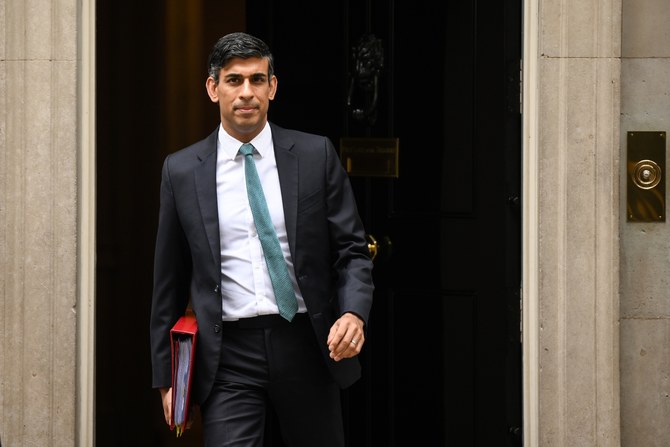
In these divisive times, it has become rare to see collective displays of European unity; a reassertion of the bloc’s core values of tolerance, human rights and the rule of law. It was thus cause for celebration last week when a two-thirds majority of MEPs supported a motion that Viktor Orban’s regime in Hungary posed a “systemic threat” to the EU’s democratic model, paving the way for sanctionary measures. Nevertheless, the 197 MEPs who opposed this motion are a warning sign of how xenophobic populists have transformed themselves from a contemptible minority to a continent-straddling insurgent force.
Orban stands accused of corruption, repression of migrants and undermining the rule of law. Measures against Hungary’s civil society, oppositionists and the media pave the way toward single-party statehood. Comparable measures in Poland for dominating the Supreme Court render the judiciary beholden to its authoritarian masters. Italy, Austria, France, Denmark and elsewhere are similarly blighted by a resurgent far right, with scarcely-disguised encouragement from Moscow. Meanwhile, racist violence in Germany is a stark reminder of fascism’s ugly face.
Democratic Europe breathed a sigh of relief last week when the anti-refugee Sweden Democrats only gained 17.5 percent of the vote in the Swedish elections, despite fears that it could outperform the mainstream parties. The integration of refugees was a dominant issue when I chaired the Stockholm International Peace Research Institute’s 2016 security conference and I was impressed by the refreshingly enlightened desire of politicians and citizens alike to facilitate the absorption of Syrians and Iraqis into Swedish society. If the extreme right can win 17.5 percent of the vote in moderate, tolerant Sweden, then God help the rest of Europe.
Having proved too treacherous and self-serving even for Donald Trump, the loathsome fascist demagogue Steve Bannon has embarked on a neverending road-trip to unite Europe’s disparate extreme right. If these transnational forces of evil act collectively through EU institutions, neo-Nazis could wield greater international influence than at any moment since World War II. America, with its complex federal system, has a long way to go before becoming an authoritarian state; yet the Trump administration’s war against the media, gerrymandering of state boundaries, obstacles to minorities’ voting rights, and demagogic governance style fly in the face of the US Constitution’s inspiring aspirations.
Last week we marked 25 years of the Oslo Accords. This historic breakthrough was trampled underfoot by the inexorable rise of the Zionist far right and the implosion of Israel’s political center ground. Instead of being challenged by a resurgent left wing, Israel’s far right was outflanked and hijacked by a messianic extreme right, which gleefully hacked to pieces any remaining hopes for Oslo’s enlightened vision of two sovereign states living peacefully side by side.
Political mainstream must rise to the challenge and define its strategy in this war against anti-liberal authoritarianism, while winning back disaffected communities vulnerable to far-right incitement.
Baria Alamuddin
During the EU vote on Hungary, the UK’s Conservative Party MEPs disgustingly held their noses and voted on Orban’s behalf. As one Tory politician explained: “We are going to gain brownie points with people who might be able to help us in the Brexit negotiations.” This demonstrates how Brexit necessitates Britain’s surrender of the moral high ground on the world stage. The EU has collectively faced down autocrats in Russia, China, Israel, Iran and Turkey over human rights abuses. When the EU stands determinedly together, it is difficult for bullying authoritarian states to take retaliatory measures against individual European nations.
As Britain attempts to go it alone, the land of the Magna Carta and the cradle of parliamentary democracy finds itself groveling and scraping before tinpot dictators to win trade deals, appease egos and avoid disfavor. A populist knee-jerk referendum vote for supposedly reasserting sovereignty has surrendered the UK’s international relevance as a core European state, leaving the British Isles fading into humiliating dotage as a declining backwater.
As former British Prime Minister Gordon Brown warned last week, such insular, populist tendencies undermine the world’s ability to muster a collective response to severe economic crises, humanitarian threats or genocide. The US’ escalating trade war against friends and foes alike also exemplifies how populist leaders are resorting to petty, spiteful and counterproductive measures that ultimately punish their own most fervent supporters.
The Hungary vote may give MEPs a sense of righteous vindication, yet Orban and his cronies will become even more trenchant in mobilizing supporters against “liberal European elites.” The last time European parliamentary democracy collapsed heralded the ascendance of Nazism, a world ripped apart by war and the senseless slaughter of millions in industrial-scale extermination camps. If this Pandora’s box of hatred, prejudice and violence is unleashed again, should we expect the consequences to be fundamentally different a second time around?
Why is it only the ultranationalists who are mobilized and organized, with the likes of Bannon and Nigel Farage contributing their malevolent talents to subverting the mainstream? Why is it only populist propagandists who are tapping into the frustrations of ordinary citizens? Liberals appear so transfixed by the Mueller inquiry and Trump’s Twitter feed that they miss the bigger picture of how the world is being deluged by an authoritarian tidal wave, exemplified by Vladimir Putin, Orban, Xi Jinping, Ali Khamenei and Recep Tayyip Erdogan.
It is axiomatic to the liberal world view that mankind collectively benefits by working together to address global challenges. Compare this with fascism’s nihilistic ideology that diametrically opposed civilizations are fated to fight to the death. How could such a narrative ever be considered populist?
The malign disease of fascism sets communities against each other, infiltrates and subverts institutions of state, and erodes the very foundations of democracy. The political mainstream must rise to the challenge and define its strategy in this war against anti-liberal authoritarianism, while winning back disaffected communities vulnerable to far-right incitement.
If they fail to vigorously block these extremists at every turn and mobilize the world behind an optimistic, progressive world view, then the political center ground will find itself brutally swept aside and banished to the margins, as the train of human progress thunders off its rails and plunges into hell.
Baria Alamuddin is an award-winning journalist and broadcaster in the Middle East and the UK. She is editor of the Media Services Syndicate and has interviewed numerous heads of state.












